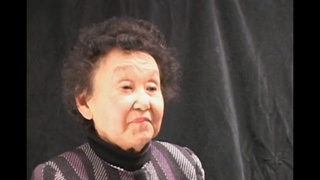Interviews
Impact of her father
He was very stern and stork, a typical Nisei man, didn’t talk about anything. I’ve learned about everything through my mom, but my images of him being shunned by the camp leadership, because of his advocacy for the Issei, I’ve always been most proud of that. Standing up for the people that were the most unpopular and who were deliberately being disempowered by the majority of the leadership in the camp was the only image that I would invoke at the worst times doing the kind of work I do thinking about where I came from and I think about him I think you know, it’s a life well lived. If it’s always in in in search of some noble objective that’s about the common good, then it’s always worth it. No matter what you lose in process. So I know that not everybody has looked at the camps the way I do but I do feel as though it’s a legacy that I’ve got to live up to and that I’ve gotta fight for the people who are being mistreated because of their race. That’s what I’ve been given and that’s what I’m gonna go with. That’s a legacy and it’s a way for it not to be wasted on me. That you know that I got this gift, in many ways, of a perspective that not everybody has. That White people will never have, that is so valuable despite the pain of it.
Date: July 14, 2020
Location: California, US
Interviewer: Matthew Saito
Contributed by: Watase Media Arts Center, Japanese American National Museum; Japanese American Bar Association










